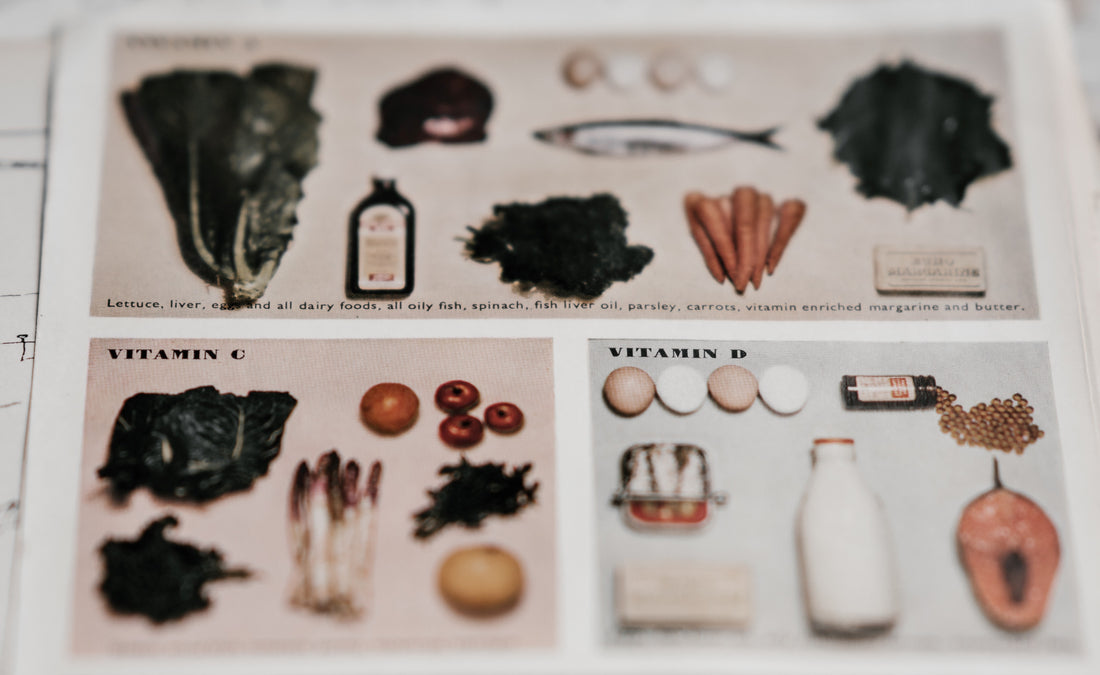
Most common vitamin deficiencies: what happens and how to adapt your lifestyle
BioCertica Content TeamWritten by: Jonine Möller, M.Sc. in Sport Science
Micronutrient deficiencies are a common and worldwide problem that adds to the global disease burden. Children, pregnant women, and the elderly are at the most significant risk, especially in low and middle-income countries.
Vitamins are classified as micronutrients because the body only needs them in small amounts. However, just because we don’t need vitamins in large quantities does not mean they are not crucial to consume. Our bodies cannot produce vitamins. Therefore, we have to get them through our diets.
Vitamins are essential for optimal growth and for synthesizing various tissues and factors. If pregnant women are vitamin-deficient, their own health, as well as the outcomes of their pregnancy, can be affected. Similarly, adequate vitamin intakes are essential for the development of their immune system and for their intellectual and physical growth and development. Our immune system also needs vitamins to function optimally.
Interestingly, micronutrients are essential not only for growth and development and protecting us against infectious diseases. They may also play an indirect role in protecting us against non-communicable diseases such as the metabolic syndrome.
The most common vitamin deficiencies are D, C, A, B12, B6, and folate (B9). Genes are most strongly linked to the metabolism and levels of vitamins D, C, and B12.
The levels of vitamins in our bodies, of course, depend on how much we consume. However, other factors also influence our vitamin levels and subsequent intake needs. Amongst these factors is DNA. Common genetic variations are associated with our bodies’ vitamin levels.
To reduce our risk for vitamin deficiencies, the quality of our diet is paramount. The typical modern Western diet is high in energy content but low in micronutrients. Thus, although the average person eats “too much”, they do not get enough of all the essential micronutrients. As a result, the health of the modern person is greatly suffering.
Eating a diet consisting primarily of natural, whole foods is the first necessary step to ensure we consume all our needed nutrients. However, the details of the ideal diet vary between individuals, partly because some individuals are more prone to certain vitamin deficiencies than others.
Thus, the answer to a healthy diet and consuming all necessary micronutrients are eating a balanced, whole-food diet and being aware of which vitamins you need more. This way, you can better tailor your diet by choosing specific foods, such as vegetables, that meet your individual needs.
Fortunately, even if it remains challenging to consume all the micronutrients in adequate amounts, vitamin supplements are an effective way to meet your body’s nutritional needs. With the vast availability of these supplements, choosing the right ones can be pretty challenging. Once again, knowing your specific genetic vitamin needs is a big help.
Take control of your health and empower yourself to make better food choices by having your genes tested by BioCertica to determine your nutrient needs. Life is too short to have its quality taken away by poor health.
References:
https://www.karger.com/Article/Fulltext/371618
https://www.ncbi.nlm.nih.gov/pmc/articles/PMC6775441/
https://www.ncbi.nlm.nih.gov/pmc/articles/PMC6020734/
https://www.ncbi.nlm.nih.gov/pmc/articles/PMC8023120/
Interested in trying the BioCertica Nutrition & Well-being DNA kit? Click here and add Nutrition & Well-being to your cart for only R1699.
If you own any other BioCertica DNA kit, you can instantly unlock your Nutrition & Well-being results for only R599* in-app.
*Terms and conditions apply: Pharmacogenetics results are R1999 in-app.



